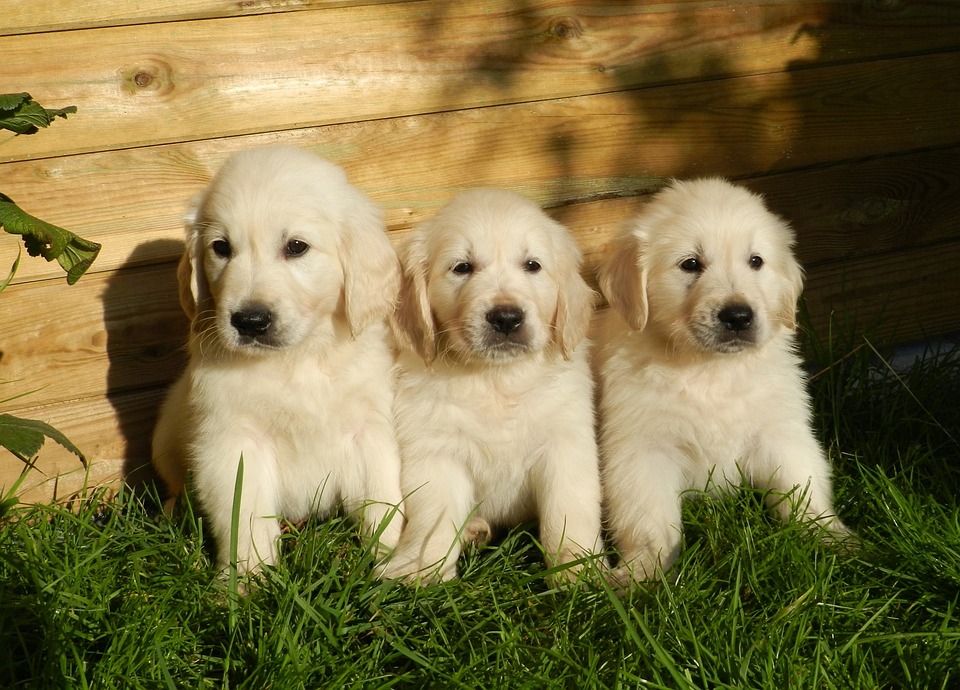Golden Retrievers are one of the most popular dog breeds in the United States due to their friendly and gentle nature. These beautiful dogs are known for their intelligence, loyalty, and playful demeanor. To keep your Golden Retriever healthy and thriving, it is essential to provide them with a balanced and nutritious diet. In this comprehensive guide, we will cover everything you need to know about Golden Retriever pet nutrition.
Understanding Your Golden Retriever’s Nutritional Needs
Golden Retrievers are active and energetic dogs that require a diet rich in high-quality protein, healthy fats, vitamins, and minerals. It is important to choose a dog food that is specifically formulated for large breeds to ensure that your Golden Retriever receives all the nutrients they need to maintain optimal health.
When selecting a dog food for your Golden Retriever, look for products that list meat as the first ingredient and avoid foods that contain fillers and artificial preservatives. It is also crucial to provide your dog with fresh water at all times to prevent dehydration.
Tips for Feeding Your Golden Retriever
Here are some tips to help you provide your Golden Retriever with a healthy and nutritious diet:
- Feed your dog at regular intervals to maintain a consistent feeding schedule.
- Avoid feeding your dog table scraps and human food, as these can be harmful to their health.
- Monitor your dog’s weight and adjust their food intake accordingly to prevent obesity.
- Consult with your veterinarian to determine the best diet for your Golden Retriever based on their age, activity level, and health status.
Common Nutritional Issues in Golden Retrievers
Golden Retrievers are prone to certain health conditions that can be influenced by their diet. Some common nutritional issues in Golden Retrievers include:
- Obesity: Golden Retrievers have a tendency to gain weight easily, so it is important to monitor their food intake and provide them with regular exercise.
- Allergies: Some Golden Retrievers may be allergic to certain ingredients in their food, such as grains or proteins. Consult with your veterinarian if you suspect your dog has food allergies.
- Joint Problems: Golden Retrievers are susceptible to joint issues, such as hip dysplasia and arthritis. Providing your dog with a diet rich in omega-3 fatty acids and glucosamine can help support joint health.
Conclusion
In conclusion, proper nutrition is essential for maintaining the health and well-being of your Golden Retriever. By providing your dog with a balanced and nutritious diet, you can help them live a long, healthy, and happy life. Remember to consult with your veterinarian to determine the best diet for your Golden Retriever based on their individual needs and health status.
FAQs
Q: What is the best type of food to feed my Golden Retriever?
A: Look for dog food that is specifically formulated for large breeds and contains high-quality ingredients such as meat, healthy fats, and vitamins.
Q: How often should I feed my Golden Retriever?
A: Feed your dog at regular intervals, typically 2-3 times per day, to maintain a consistent feeding schedule.
Q: Can I give my Golden Retriever human food?
A: It is best to avoid feeding your dog table scraps and human food, as some ingredients can be harmful to their health.
References
1. Burk’s AAFCO-compliant dog food recommendations
2. Veterinary Nutritionists
3. Golden Retriever Club of America
Disclaimer
The information provided on goGoldenRetriever.com is for general informational purposes only and is not intended as medical advice. The content on this website is not intended to be a substitute for professional veterinary advice, diagnosis, or treatment. Always seek the advice of a qualified veterinarian or other qualified healthcare provider with any questions you may have regarding your Golden Retriever’s health or medical condition.
Learn more















